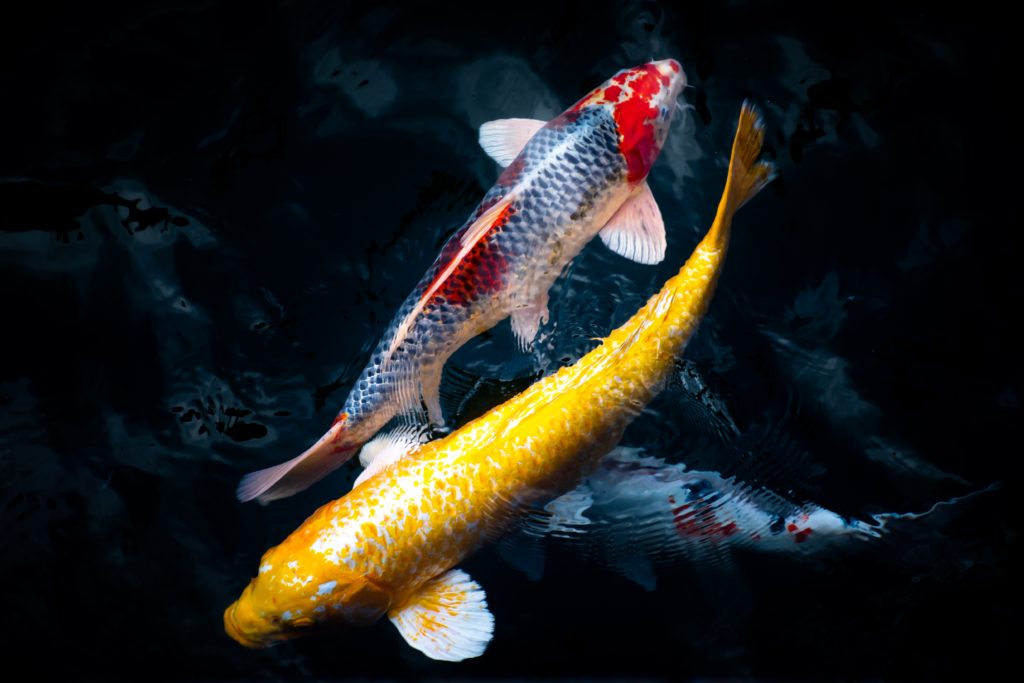Ever wonder where racism, oppression, war, slavery, or any other atrocity related to prejudice and discrimination comes from?
Volumes have been written on the complexities and history of these practices and their societal impact, but the underlying cause remains the same — it’s what psychologists call ingroup-outgroup bias.
Ingroup-outgroup bias is the phenomenon where we show favoritism toward people we share something in common with, and exhibit disfavor or hostility toward people we deem as “different.”
As humans, we’re naturally inclined to group information into categories: good vs. bad, healthy vs. unhealthy, friend vs. enemy, right vs. wrong. This becomes problematic when we create groups based on superficial characteristics. Researchers have found that we’ll develop ingroups for things as arbitrary as having the same birthday, name, favorite sports team, or being from the same geographic area. We feel bonded to someone we have something in common with— so we show favoritism toward them.
You were born in November, too? Awesome! Let’s be BFFs! That’s what we sound like. Our new “friend” could be a complete sociopath, but because we’re both November babies, they must be cool. This is the halo effect in action — where our overall impression of a person influences how we feel and think about their character. So his birthday is in November, like mine! Becomes, he must also be nice and trustworthy. But the halo effect works for negative associations too. She speaks with a foreign accent, so she must not be as intelligent as me. He’s from a low-income area, so he must be a criminal.
We see members of our ingroup as unique and generally good people, while we see outgroups as homogenous and inferior to our own.
But ingroup-outgroup bias helped our ancestors survive; it’s evolutionarily advantageous. If you live in prehistoric tribal society, it makes sense to be wary of outsiders — they could be hostile or carry disease. Even in today’s society, we teach our children about stranger danger so they stay safe; the message is similar: be wary of people who aren’t familiar. But this quickly turns into, be wary of anyone different than you, which morphs into racism, homophobia, and all the other kinds of prejudice and discrimination that have plagued our planet since time immemorial.
•••
The “Us vs. Them” Mindset
Black vs. white, cops vs. minorities, gay vs. straight, American vs. immigrant, men vs. women, rich vs. poor, conservative vs. liberal, millennial vs. boomer — this “Us vs. Them” mindset plagues our society and keeps us in a constant war with the “Others.”
These “Others” are clearly inferior to our own group in some way, whether they’re genetically inferior, intellectually inferior, or morally inferior, the message is the same — they’re not as good as “Us.”
It’s easy to oversimplify our world. If you’re not with us, you’re against us. But these two boxes aren’t big enough to fit everyone in the world into.
We wouldn’t enslave a human being that we consider our equal, but those people are inferior, which makes it okay. Killing human beings is typically wrong, but [insert whatever racial slur you want] are subhuman — they’re not like us; look at the slurs that come out of wartimes, we come up with terms to make our opponent the “Other.” Imprisoning, experimenting on, and gassing human beings is an atrocity, but those people are our enemies! You don’t build a wall to keep out your friends; you build a wall to keep out those filthy immigrants — they are taking our jobs! Derogatory slurs are designed to reduce someone to subhuman stature — to dehumanize them — to justify treating them inhumanely. It perpetuates the “Us vs. Them” mindset.
But if ingroup-outgroup bias is rooted in our history, is there anything we can do about it? Thankfully, we can turn to the field of psychology for solutions.
•••
How Social Psychology Can Help Us Overcome Our Biases
Two experiments famously illustrate how quickly we create exclusive groups and ways to improve cooperation and tolerance.
The Jigsaw Classroom
In the 1950s, when schools were going through desegregation, they needed a way to reduce racial tensions in the classroom. Students were competitive and taunted each other, furthering the “Us vs. Them” divide.
Dr. Elliot Aronson, a psychologist, was hired to help an Austin, Texas school district. He created the jigsaw classroom technique, a method of organizing classroom activities so that students had to cooperate and depend on each other to succeed. His process involved breaking students into smaller groups and giving each of them part of a larger assignment — each member was equally important, and each group only had a few pieces of the assignment, so they had to cooperate with other groups to assemble the pieces, like a jigsaw puzzle.
The students learned to rely on each other because cooperation, rather than competition, was the only way for them to succeed. Each student needed everyone in their group to do well because their individual grade depended on the group’s overall success.
The students went from racially-divided “Us vs. Them” groups to a single “Us” group. Just like individual puzzle pieces uniting to create a single cohesive picture.
The Robber’s Cave Experiment
This experiment, also in the 1950s, involved researchers posing as summer camp personnel where they split 22 adolescent boys who had never met each other into two groups. Once each group had bonded, the researchers created a series of challenges that resulted in each group becoming increasingly hostile toward the outgroup over competition for limited resources, thus creating an “Us vs. Them” mindset.
Then the researchers introduced challenges that required the groups to work collaboratively to succeed. One example involved the researchers staging a breakdown in the camp’s water supply. In response to this crisis, the boys had to temporarily set aside their differences and work cooperatively to explore the mile-long water line and find the break.
As the groups engaged in more cooperation-based activities, hostilities between the groups subsided. By the end of the camp, the boys were arranging friendly cross-group interactions on their own initiative.
The Robbers Cave experiment demonstrated that although contact is vital to reducing tensions between groups, interdependence is essential for establishing lasting intergroup harmony. It also has implications for reducing conflict between real social groups, better known as realistic conflict theory, which specifies that prejudice and discrimination result when groups are placed in competition for valuable resources.
•••
Final Thoughts
The “Us vs. Them” mindset causes us to compete against each other and show hostility toward anyone in the outgroup. Only our ingroup is worthy of resources — whether money, respect, dignity, education, or civil rights. This leads to a world of hostility and inequality.
But there’s another way to live. Another world we can build.
It’s difficult to be racist when you have friends who are minorities. It’s difficult to be homophobic when someone you love is LGBTQ+. It’s difficult to hate cops when your best friend is one. It’s difficult to hate Muslims when your gym partner is Muslim. It’s difficult to be anti-XYZ when someone you personally know and respect is XYZ — because they’ve become part of your ingroup. They’re no longer an outsider; “they” have become “we.”
We are human beings. We are stronger together; not despite our diversity, but because of it. Diversity allows us to tap into the unique strengths each of us brings to the table. But diversity can be scary if you’ve never been introduced to it. So if diversity scares you, that’s okay. As long as you’re willing to learn and show compassion toward people. Because we have more in common than differences. There’s only one group we belong to — human.



